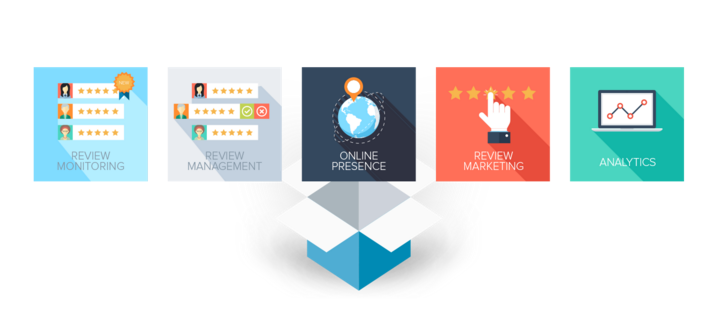A successful digital marketing strategy makes use of multiple elements, two of which are SEO (search engine optimization) and social media. SEO and social media work together in many ways to increase your website’s organic traffic.
While social media management doesn’t directly impact SEO as a search engine ranking factor, it does still add immense value to your business. 
Listed below are eight ways your active social media program impacts your online presence when a new patient searches for a dentist on Google.
1. PAGE VIEWS & IMPRESSIONS
Before further discussion, it’s important to understand the difference between page views and impressions. Page views are the number of times a user interacts with a page on your website, such as clicking on your homepage.
Impressions reflect the number of times your website appears on a Search Engine Results Page (SERP) on a user’s screen. This does not necessarily mean that they click on anything.
Impressions may not sound all that useful, but they correlate with the number of clicks and page views. The higher a website’s impressions, the greater the number of clicks.
Social Media’s Impact: So, how do you increase your impressions and clicks? With a great social media and SEO plan!
2. VISIBILITY & CLICK-THROUGH RATE
The more visible your dental practice is in search results, the higher the chance someone searching for dental care will find your business and click on your website.
Social Media’s Impact: Social media profiles appear in search results. The more active you are on your social media accounts, the more your business and your website will appear in Google Search.
3. NAP CITATIONS
Citations are the modern-day version of the phone book. They’re a virtual version of your public information.
Consistency is vital when it comes to citations. Make sure you’re not sleeping on NAP! NAP stands for Name, Address, and Phone Number. Citations across the web can include more than your NAP, but including NAP is the bare minimum for citations. Nearly all citations allow you to link to your website, so don’t forget this vital step.
Google My Business is one of the most important citations since it displays prominently on the right-hand side of the search engine when a user searches for your business.
Social Media’s Impact: Your social media pages (Facebook, Twitter, Instagram, etc.) are considered citations too. It’s important to ensure your NAP and other key information match across the web so Google can crawl your information easier and faster. Accuracy also builds trust with Google.
4. FRESH & RELEVANT CONTENT
When it comes to SEO, content is king.
Your website should include keywords relevant to your services. We recommend creating service pages for what you offer patients.
Blogs are also great for adding fresh content to your website. You can share blogs across a variety of platforms, including social media channels.
Social Media’s Impact: Social media posts are a great way to create and share content, as well as generate links. Post photos and videos of your business, and don’t forget to interact with your followers!
Ensure you have live social media feeds on your website, or clickable links from your website to your social media channels too.
The more active you are on social media, the more current and prospective patients will flock to your fresh and relevant content.
5. MESSAGE MATCHING
Message matching is all about consistency. Your brand, which includes your presence on all platforms across the web, should have the same style of writing, text, tone, colors, and logos.
When writing content, it’s important to ensure that you have a message in mind, and to stick to it.
Brand confusion can lead to many things, among them a drop in rankings, and even loss of conversions!
Social Media’s Impact: If you have multiple people managing your social media accounts, confirm that they communicate regularly with each other about what to post and when to post it. A consistent voice is just as important as consistent posting.
6. EAT
EAT is a term used in SEO that stands for Expertise, Authoritativeness, and Trustworthiness. While it may not be a direct ranking factor, it does play an important role in capturing Google’s attention. When your dental practice is recognizable across the web and has a consistent voice (i.e., message matching), Google is more likely to consider it trustworthy.
To address expertise, utilize your network. If a dentist at your practice or a professional colleague is an expert on a particular topic, ask if they would be willing to write a blog. Google prefers content written by a subject matter expert, so take advantage of this when you can.
Brand awareness helps make a business authoritative, so check that you have a prominent logo displayed on your website and across the web.
Social Media’s Impact: EAT doesn’t only apply to your website. Since Google crawls anything related to your business, social media channels are important too.
When sharing content on Facebook, Twitter, or other social channels, confirm it is relevant to your business. Do your research before posting to ensure that you’re not sharing misinformation.
As mentioned earlier, make sure your message matches your brand as well, so your style, text, logo, and colors should match those on your website.
7. REVIEWS & REPUTATION
Positive reviews and recommendations are wonderful, of course, but even when you receive a negative one, a genuine response will go a long way.
Google Reviews are helpful for Local SEO. When a patient writes a review on your Google My Business profile, Google will bold keywords in the review that apply to your business. These keywords are pulled from relevant content on your website.
Make it easy for current patients to write reviews across multiple platforms by placing a reviews page on your website.
Social Media’s Impact: Most, if not all, social media platforms allow users to write reviews and make recommendations.
The more reviews you receive, the more prospective patients (and Google!) will trust your authority. And the more authority you have, the higher you’ll rank on the Google Search Engine Results Page.
8. ANOTHER SEARCH ENGINE
Social media is a type of search engine. When a user searches for a service, they don’t always navigate directly to Google. Sometimes, Facebook Search or Yelp Search will do, particularly for local businesses.
Healthgrades is an important search engine for medical professionals. As an added bonus, completing your Healthgrades profile typically guarantees you a spot on the first page of Google Search.
If you have multiple practitioners at your dental practice, make sure everyone completes their Healthgrades profile! The more completed profiles, the more real estate your dental practice will take up in the Google search results.
Social Media’s Impact: Search, no matter the platform, is all about intent. The more your dental practice appears on multiple search engines, including ones hosted by social media platforms, the more likely you are to be discovered by someone searching for dental care.
OVERVIEW
An effective marketing strategy includes many services. Here at Whiteboard Marketing, we can tailor a plan specifically for your dental practice.
Do you need assistance with SEO? Are you at your wit’s end attempting to navigate your social media presence? We’d be more than happy to help, so give us a call today!
